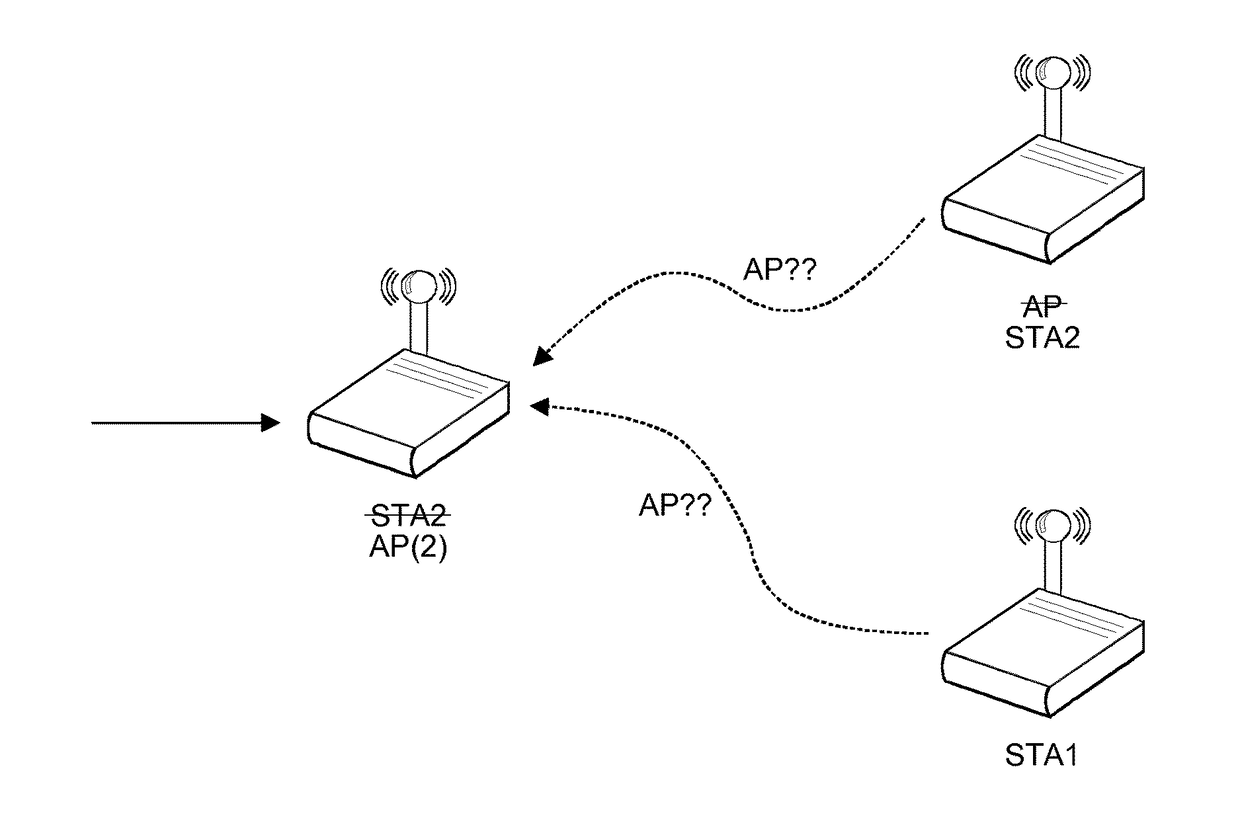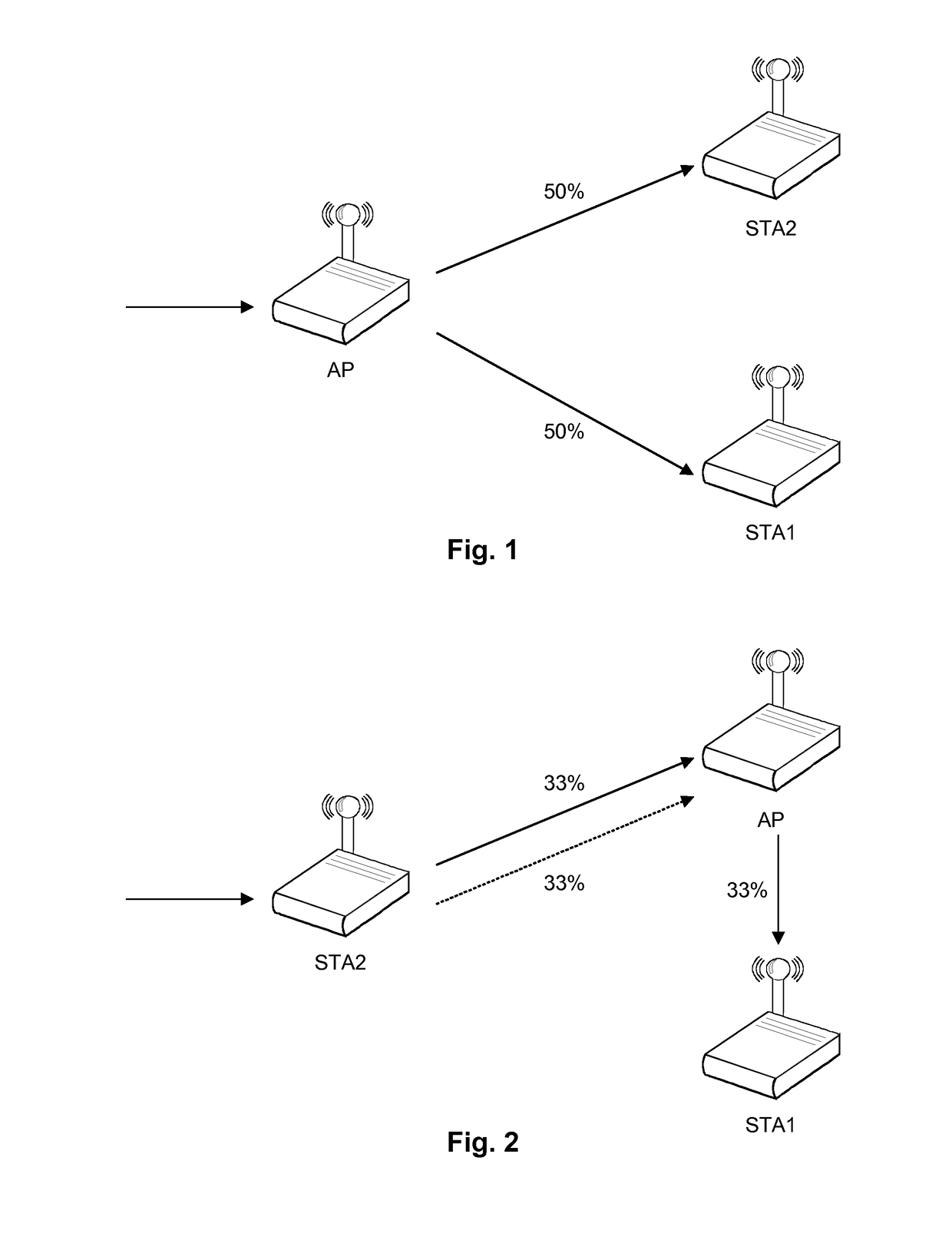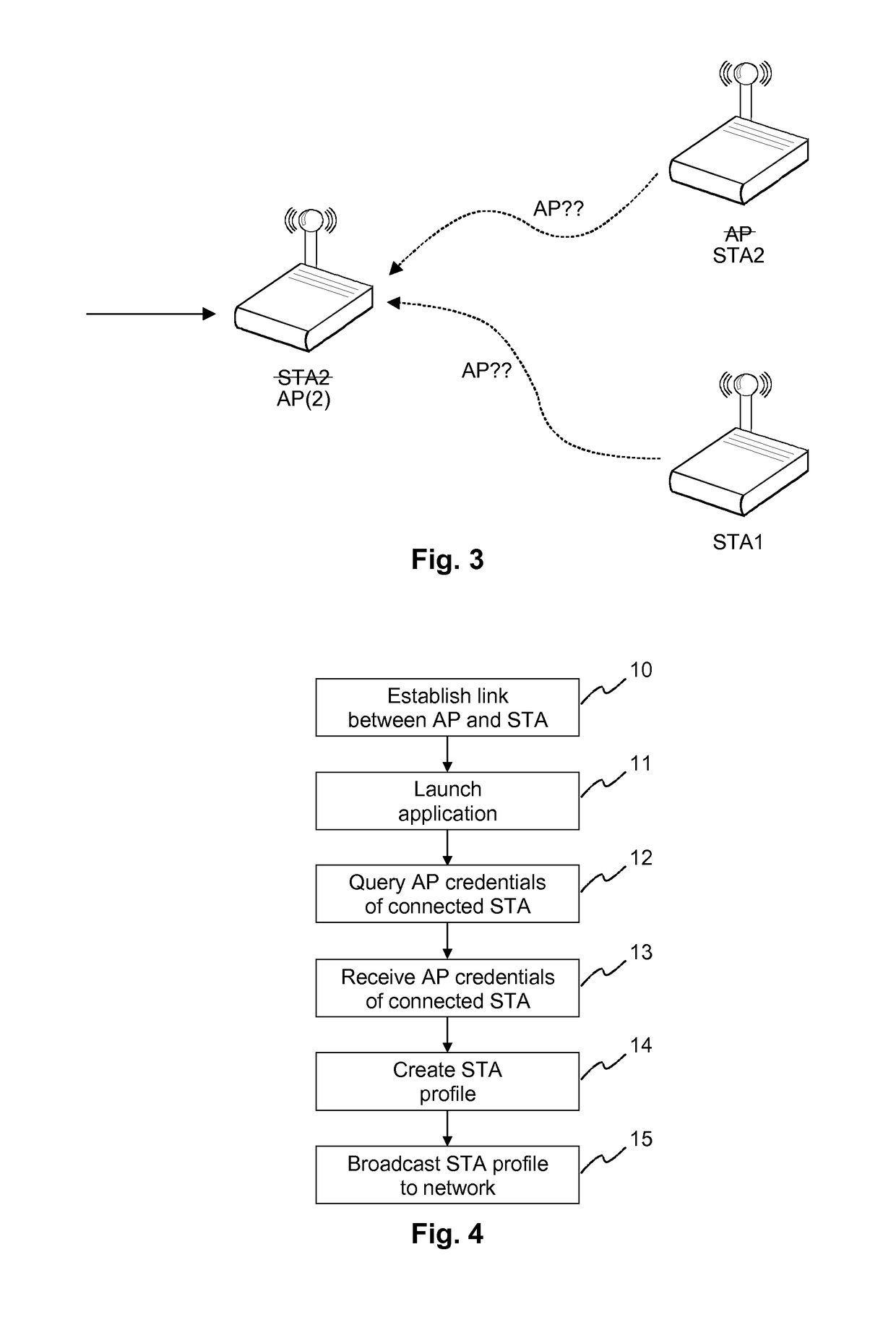Automatic reconfiguration of network devices
a network device and automatic reconfiguration technology, applied in the field of automatic reconfiguration of network devices, can solve the problems of putting a lot of pressure on the product cost, a lot of devices do not yet have the necessary hardware on board, and devices embedding wi-fi technology have the chance to get obsolete or at least less popular quite fast, so as to achieve the effect of sufficient tim
- Summary
- Abstract
- Description
- Claims
- Application Information
AI Technical Summary
Benefits of technology
Problems solved by technology
Method used
Image
Examples
Embodiment Construction
[0047]In the following a solution according to the invention for a credential recovery and auto-provisioning mechanism is described.
[0048]Considering FIG. 1 again, the scenario illustrated in this figure is the “factory default” scenario. An end user has either received three devices that can be connected in every possible way, because they have been pre-paired, or the end user has connected the devices in a random order and has correctly established the WLAN. For example, the WLAN may have been set up using the WPS-PBC method twice, i.e. once for each station STA1, STA2.
[0049]In FIGS. 4 and 5 methods according to the invention for credential retrieval and auto-provisioning performed by an access point and a station, respectively, are schematically illustrated. FIG. 6 shows the data exchange performed for credential retrieval and auto-provisioning in more detail. Once a link between the access point AP and a station STA1, STA2 is established 10, an application is launched 11 that qu...
PUM
 Login to View More
Login to View More Abstract
Description
Claims
Application Information
 Login to View More
Login to View More - R&D
- Intellectual Property
- Life Sciences
- Materials
- Tech Scout
- Unparalleled Data Quality
- Higher Quality Content
- 60% Fewer Hallucinations
Browse by: Latest US Patents, China's latest patents, Technical Efficacy Thesaurus, Application Domain, Technology Topic, Popular Technical Reports.
© 2025 PatSnap. All rights reserved.Legal|Privacy policy|Modern Slavery Act Transparency Statement|Sitemap|About US| Contact US: help@patsnap.com



